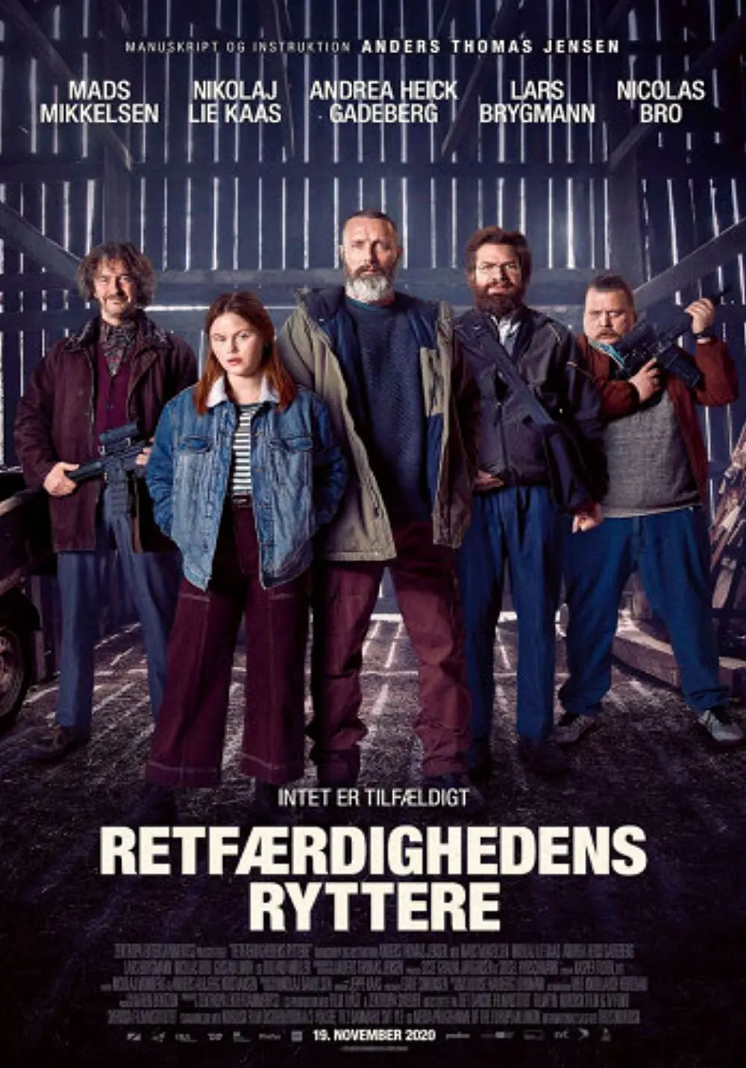Danmarks sonner What happens when you pull the trigger?

Can Ali kill Martin.Nordahl stop the film’s Denmark from slipping into the far right? Would it have prevented the Nazification of the country?
No, it won’t. The shooting of the winning prime minister by a law enforcement officer with Arab roots would only accelerate the country into the lane of the far right. People with a neutral attitude will also be pushed into the conservative camp.
Nordahl’s death would have made him a martyr, would have canonized him, would have made him a spiritual symbol that could no longer be destroyed by bullets.
Ali shot Nordahl just for revenge, in his eyes Nordahl has become the embodiment of the “Son of Denmark”, the sins of the Son of Denmark are the sins of Nordahl, he wants to avenge the disfigurement of his wife.
The first half of the film demonstrates why a nineteen-year-old Muslim joins a “terrorist organization: there is spray paint on the road cursing them, a pig’s head is thrown under the apartment building and pig’s blood is poured on it, and a lot of videos of Muslim people’s misfortunes are watched on the Internet.
This is in fact a typical case of “nationalism awakening”, what is nationalism? What is nationalism? It is the feeling of identification with one’s “fellow countrymen”. Although in daily life the person in the video may be a crooked merchant who has cheated you with fake goods, a thief who has stolen from your home, or a bully who has bullied you in school. But once the perspective into the “compatriots”, the hero can not help but be indignant about their own experience, more “compatriots” of other sufferings empathy. That’s why he said “millions of people died in Iraq, and people are being blown up every day in Syria”. (The director here pinched Syria Iraq Afghanistan together, but these countries were also artificially divided after World War I is also reasonable).
If the protagonist is not a young Muslim living in Denmark, if the protagonist lives in his own country on his own land, he may become a member of the rescue organization after the awakening of nationalism, in the struggle to become the leader of this organization, leading the organization to regain control of the country, to become a national hero to bring peace and autonomy to the country. Mao, Nasser, Castro and Ho Chi Minh all came this way.
But he was a young man living in Denmark who awakened to Arab nationalism, and that is the big problem. He may have acquired permanent residence in Denmark, he may have acquired Danish citizenship, but he is definitely not a “Dane” in terms of cultural identity. The main character, A, still thinks of himself as an Arab and a Muslim. This is a problem that the director deliberately avoids.
If the world were one, there would be no more borders, no more countries, and people all over the world would coexist in harmony within a political framework, then the main character A’s problem would not be a problem.
But the foundation of the modern state since the French Revolution is nationalist identity, the world is not yet a commonwealth, the division of countries and nations still exists.
The country is still the property of the nation, Denmark is still the property of the Danes, the introduction of foreign populations while these populations do not have a Danish identity, is equivalent to the dilution of the shares of the original shareholders in the over-issuance of shares. Normal immigration will not have an impact, because immigration channels to obtain citizenship is not easy (Denmark is a Schengen country is still a bit special), a small number of refugees can still be tolerated, but a large number of imported refugees will of course trigger the outrage of their own people.
The director is a second-generation Muslim, so the film implies a premise that is also the source of his self-identity, that is, “I’m a Dane”, so the main character, A, takes his life in Denmark for granted. But I would like to ask the nineteen year old jobless Iraqi refugee man in the film: what makes you take your life in Denmark for granted?




